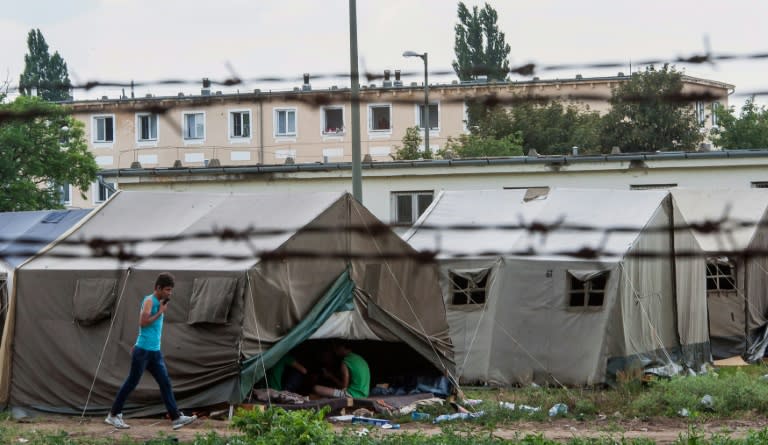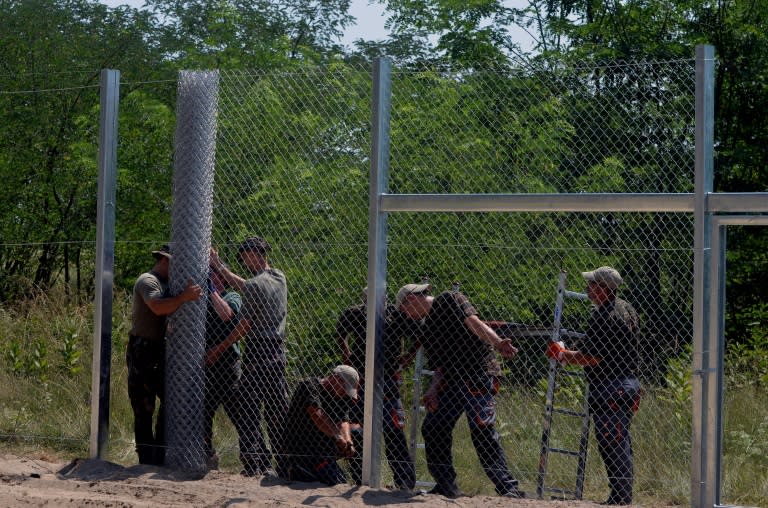Hungary to close refugee camps in populated areas
Hungary plans to close its permanent refugee shelters in towns and cities and set up temporary camps outside urban areas instead, the latest response to a surge in migrants crossing its borders. "The government's position is clear: the cabinet's aim is to move out the camps that are currently in populated areas," an interior ministry spokesperson told AFP by email on Thursday. The temporary shelters would be tented camps, Janos Lazar, Prime Minister Viktor Orban's chief-of-staff, said Thursday. One will be located close to the border with Serbia, Lazar told a press conference, "so that local people would not be disturbed by the masses of refugees." Over the last two years, Hungary has been one of the main routes for people hoping to cross into Austria and Germany, most coming from Afghanistan, Iraq, Syria and African countries. Earlier this week Hungarian soldiers began erecting a four-metre (13-foot) high barrier along the 175-kilometre (109-mile) border with Serbia. So far in 2015, Hungarian authorities have registered over 81,000 migrants crossing the border illegally, about 80,000 of whom entered from Serbia. Unlike its neighbour to the south, Hungary is an EU member and is also in the bloc's passport-free Schengen zone which means that once migrants are inside the country, they can easily travel elsewhere. The government said Thursday the entire fence, whose wire mesh is being put together by prison labour, will be finished by November 30. "If the border is closed, there will be no need for large-capacity refugee camps," Lazar said Thursday. Currently, Hungary operates four refugee camps, all on the outskirts of urban areas, where people are housed while their asylum applications are processed. The combined capacity of the four camps is around 1,500, although both government officials and refugee agencies say all are overcrowded. Last month, police used tear gas to quell disturbances in and around Hungary's largest refugee camp in the eastern city of Debrecen, an 800-person capacity facility where some 1,500 people are currently staying. Anti-migrant protests have also been held by local residents against the influx of new arrivals at the camps. The far-right Jobbik party, now Hungary's second most popular party after Orban's ruling Fidesz party, has long called for all the camps to be closed. In a visit to Debrecen in May, Orban said the camp there should be shut for good. "We don't want more migrants to come. Those who are here should go home," he said at a press conference.



